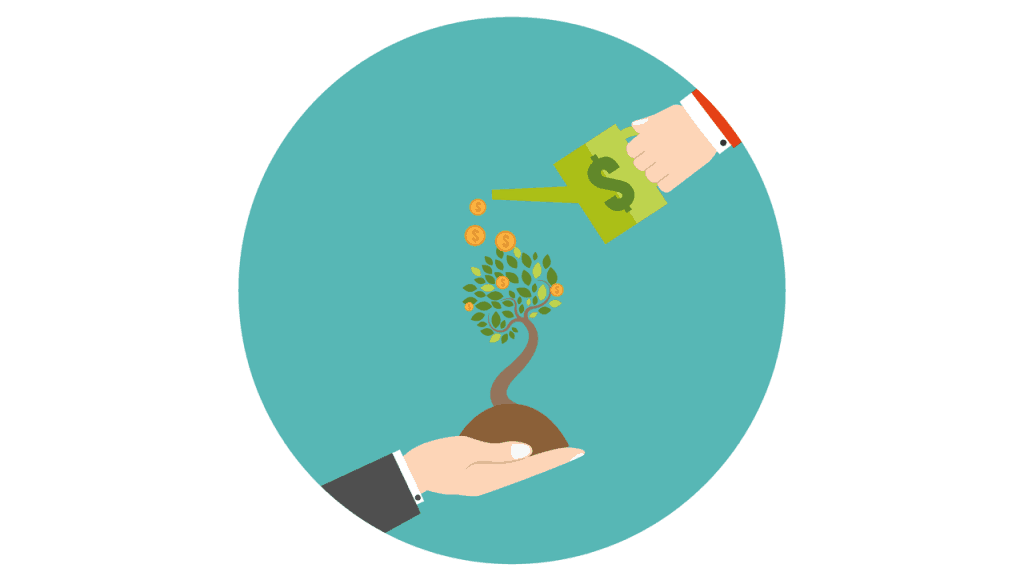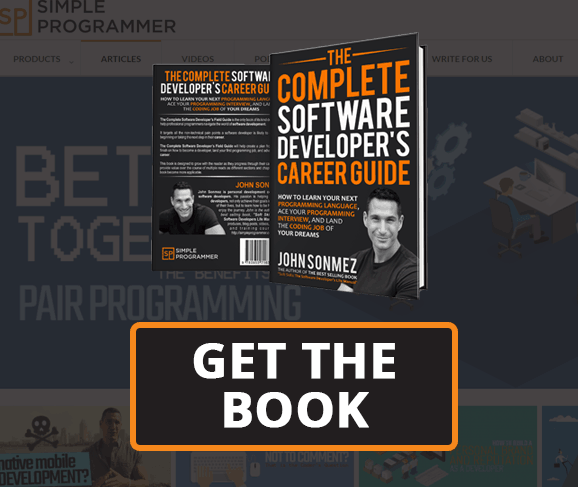Here I sit, on a plane, getting ready to write a chapter about work/life balance, and I’ve already slipped into one of the habits that I’m about to condemn.
I’m trying to figure out how to start this chapter, trying to will myself to type it, and I’m thinking of it as “work,” a thorn in my side, interrupting me from my “life.”
I allowed my mind to shift from: “I get to do this” to “I must get this done so that I can enjoy the rest of my day.”
I made the cardinal sin of allowing work to become “work”, and that is the formula for misery.
You see, work/life balance is about a mindset, not about a specific formula of how many hours you should devote to the office, how much time you should take to decompress, and how much time you should spend with your family or doing what you want.
To achieve true work/life balance––at least how I see it––is to not achieve it at all, but to blur the lines so well that everything becomes “life.”
To make a subtle shift of focus from two heavily-compartmentalized concepts, making them become one.
To stop trying to balance work and life, and instead to seek to live a balanced life in general.
In this chapter, we’ll explore the myth of work/life balance, and then focus on some key concepts to living a balanced life––to live the life you want to live, rather than the one you have to.
Work/Life Balance Is A Myth
Far too many software developers I know––and people in general––tend to have two separate lives.
One life is their work life, which they sometimes enjoy, mostly tolerate, and quite often dread.
The other life is their “life” life, where they play with their kids, socialize with friends, play video games, run, bike, hike––whatever they enjoy––and there just never seems to be enough time for it.
Other software developers I know have no “life,” instead they work, work, work, and keep telling themselves that someday they’ll actually live their life.
They’ve actually put their lives on hold until they achieve this goal or that, or even until they retire.
That’s when they can do what they want.
It’s at that time they can actually live their life.
Sadly, I have to admit, that was me, for a large portion of my life.
I always had the dream of retiring early, so that I could really live my life.
The fact that the day of early retirement did come, and I am still working, and writing this book, should alert you to the fallacy of my thinking.
The problem is that work/life balance is a myth.
The very concept requires you to compartmentalize your life, to say that these hours are for working and these hours or days belong to living, and ne’r the two should meet.
Let’s just consider this from a practical perspective.
You and I, we both have the same amount of hours in the day––along with everyone else.
We’ve all got 24 hours and we’ve got seven days a week.
If you take a typical work day and you subtract out eight hours for sleeping, you’ve got 16 left.
Now take out the eight hours for working and we’ll throw an hour commute time in there as well for good mea––oh wait, what’s that you say? You work more than eight hours?
Oh, ok. Fine then. Let’s be realistic and take out 10 hours for working and commuting to work?
Happy now?
You shouldn’t be, because that just leaves you with six hours.
Six hours every day to get ready for work in the morning, eat your breakfast and dinner, watch the evening news, play with the kids, relax, and do whatever else you like to do with your “life.”
That’s not much.
That’s not much of a life at all.
Oh wait though, I’ve forgotten the most important part: the weekends.
Yes, the glorious weekends, in which you get a full 48 hours––and on the lucky occasion of a three-day weekend, 72 hours––of pure, unadulterated, heavenly bliss. (Aside from the sleeping you have to do between your partying, but I don’t want to completely ruin your fantasy just yet.)
And for how many years do you expect to do this?
Perhaps 40 or more?
So, you are going to spend your “life” only “living” six hours a day and weekends for the next 40 or so years?
Again, doesn’t sound like much of a life.
I don’t know about you, but I’d rather live my full life to the fullest, all the time.
That’s why compartmentalizing your life is toxic.
When you make the distinction between work and life, and love one and dread the other, you are robbing yourself of any chance of having a life full of enjoyment, enrichment, and purpose.
The truth is, your work is as much part of your life as anything else.
We have to stop thinking in terms of work/life balance and start thinking in terms of quality of life.
What is the kind of life you want to live? What is important to you?
Those are the important questions to ask yourself.
Once you can answer those questions, you can start to figure out how to design your life, including work, the way you want it to be, instead of trying to fit your life into the hours you have left over outside of work.
Overtime Is Rarely Beneficial
Even though I said that work/life balance is a myth, that doesn’t mean there isn’t such a thing as working too much.
I see far too many eager software developers spending ridiculous amounts of time at the office, thinking that putting in all these hours is going to help them advance their career.
While it’s true that working overtime may help you climb the corporate ladder, especially in a work environment where that is expected, in most cases it’s not going to make as big of an impact on your career as you would think.
More importantly, it’s going to greatly reduce the quality of your life.
I’m all for working hard, but I’d rather work hard for myself rather than making someone else rich.
Excessive overtime often comes at a high price with very little reward, so try and avoid this trap.
My advice: work 40 and that’s it.
The only exception is the very rare occasion where there truly is an emergency and the extra hours really will make a difference.
Most work/life balance issues are solved by this single piece of advice.
But That’s No Excuse For Not Working Hard
Don’t get me wrong though, I’m not saying to slack off.
In fact, far from it.
I work quite a few hours, and I always have.
But when I did work a regular job, I gave my employer his 40 and then I gave the rest to myself.
When I worked a job for someone else, I worked hard.
I did the best job I could.
They got their money’s worth for my 40 hours––I made sure of it.
I didn’t give them my entire life.
I didn’t sit back and relax when I was off from work; I worked even more, but I worked for myself.
Sometimes people would say I had no life, because I worked so much.
But that’s not quite true.
Part of integrating your life and removing the distinction between work and life is to realize that sometimes you don’t need balance, you need seasons instead.
There were seasons where my life mostly consisted of working.
Working for someone else for the 40 and then working for myself the rest of the time.
I put in 70, sometimes 80-hour-weeks of work, but it was a season of my life where I was willing to make that sacrifice to get to where I wanted to be and to reach my goals.
I wasn’t concerned about balance, because I saw my life, whether I was working or playing video games, as my life.
I was making the choices I wanted to make so I could enjoy my life 24 hours a day, even though it was often quite a bit of hard work.
The important thing is to know what the price is you have to pay, and then being willing to pay that price.
You can have anything in life––you can have any kind of life you want––if you are willing to pay the price for it.
Again, that’s not work. It is life.
Life involves work––sometimes really hard work.
Think in terms of seasons instead of balance.
Oh yeah, and after my season of work was done, I took a season of living on the beach in Maui for a couple of months where I didn’t work much at all.
But whether I was surfing or coding, I still considered my life one whole integrated life which I was choosing to live, not being forced to live or begging for scraps for.
Pay Yourself First
One way to make sure that you have control over your life is to make sure to pay yourself first with your time.
Again, so many of us go to work for our employer and then give ourselves the leftover time.
Often when we live our lives this way, we feel like we need more work/life balance, because we are not setting the direction of our lives and using our most valuable asset, time, effectively.
Wake up an hour earlier each morning and dedicate that time to you.
Spend your first, freshest hour on yourself and your ambitions.
Perhaps it’s starting that side business, building up your physical fitness, or even getting good at playing an instrument.
I suppose it could even be playing video games––if that is what you want to do with your life.
But, just like my dad used to say about my paycheck, pay yourself first.
When you live your life this way, you won’t feel like you are getting robbed and living your real life in leftover spaces.
If you need more time, take more time.
Wake up two hours early.
Wake up at 4 a.m. if you have to and spend your most productive hours of the day on you.
Make Taking Care Of Yourself Your Priority
That brings me to another point.
Before you take care of anyone else, before you give, make sure you get.
I know this sounds greedy, selfish, and quite unlike what your Sunday school teacher taught you, but the truth is that you can only give what you already have.
If you aren’t taking care of yourself and meeting your needs, if you aren’t personally growing and developing as a person, you aren’t going to be very useful to the people around you.
On my calendar every single day from 3 to 5 p.m. is “workout.”
I never miss it.
When I say never, I mean never.
Some days I may have to reschedule it, but I almost never do that.
Pretty much every single day, I am either lifting weights or running from 3 to 5.
That is my personal, physical development time.
I also spend that time listening to audiobooks, so I develop mentally as well.
In fact, I spend a great deal of time on personal development, because I want to live as close as possible to my full potential.
Doing so ensures the quality of my life improves every day and it gives me the ability to contribute more to society and the people around me.
My “greed” enables me to be much more generous than I would be able to be without it.
I’m selfish with my time, so I can give more valuable time to those around me, and I can be more effective at everything I do.
One sure formula for bitterness and resentment is to give to other people, when you yourself are lacking.
Put your own oxygen mask on before you help someone else with theirs.
Carefully Choose Your Relationships
One of the reasons so many software developers, and people in general, struggle with work/life balance is the number of relationships they try to maintain.
The more relationships you try to maintain in your life, the less time you are going to feel you have, because it takes time and effort to maintain all of these relationships.
It’s good to have many friends, but it’s better to have a few good friends, especially if they are aligned with your professional and personal goals.
Carefully culling your relationships and only keeping the ones that are most valuable and important to you can free up a large amount of your time and give you more time to spend with the people you really want to spend time with.
Maintaining fewer, stronger relationships will make the overall quality of your life better without requiring a larger social time commitment.
This is especially important if you are in a season of your life where you are working very hard to get ahead in your career, build your own business, or take on some other time-consuming challenge.
Not only do you gain the benefit of having a better work/life balance by getting more value out of your social life, but by carefully selecting your friends and which relationships you want to maintain or invest in, you can better direct the course of your own life.
Jim Rohn is famous for saying “you are the average of the five people you hang around the most,” and I believe this is absolutely true.
So many of us hang around and maintain relationships with people––and sometimes family members––who constantly bring us down instead of lift us up.
Life is too short to waste your time with these people.
It doesn’t mean you have to cut them out of your life completely, but you can always demote them from friend to acquaintance status.
The more you improve the quality of the time of your non-working life, the less need you’ll feel for work/life balance.
The more closely your relationships align with your professional and personal goals, the more integrated your life will be.
Live In The Present
The final piece of advice I’d offer you on work/life balance–or rather dispelling the need for it––is to live in the present moment.
So many of us spend most of our thoughts in the past or the future; we don’t realize that life is now, and life is passing us by.
It’s very easy to put your life on hold, always looking to “really live your life” at some point in the future.
So many times I’ve heard people say, just like I’ve said myself, “I’ll really live my life once I achieve this, once the kids grow up, once I get a better job, reach this financial goal, etc.”
Well, life is now.
Life is always now.
You can’t live in the future anymore than you can live in the past.
Unless you change your thinking and stop putting off your life and really living it, when that someday comes, you’ll find yourself longing for the next someday.
Some people live their entire lives waiting for their lives to begin.
This is not a dress rehearsal; your life is now, in this very present moment.
So stop putting off “living your life” and start doing it now.
That doesn’t mean you adopt the YOLO (you only live once) philosophy and live completely for the present moment, neglecting your future.
It does mean that you have to stop seeing your days and your life as something you get through in order to get to some point where you can finally enjoy yourself.
You and I have the capacity to fully enjoy every moment of our lives.
Again, this is another reason why I believe the work/life balance myth is so toxic.
It tells us that we have work, which we just tolerate and we have life, which we enjoy.
Instead, make the most of every moment of your life, whether you are at work, doing something you don’t particularly enjoy doing, or you are at home engaged in your favorite hobby or socializing with friends and family.
An excellent book on the topic is The Power of Now by Eckhart Tolle.
It’s a bit of a strange book, so don’t say I didn’t warn you. You don’t have to agree with all of the author’s philosophies on life and spiritual beliefs, but it has some great wisdom in it and some practical advice for living in the now.
True Work/Life Balance
Remember, you’ll only achieve true work/life balance when you stop trying to achieve it, and instead focus on just living your life as fully as possible.
And you can only do that if you are willing to take the time and put in the effort to actively decide what kind of life you want to live, and then take the actions required to make it a reality.
Take care of yourself, choose your relationships carefully, and live as much as possible in the present moment, and you’ll find your life doesn’t need “balance”, because you’ll find joy and fulfillment in whatever you are doing.
If you take one thing away from this book, take this.






